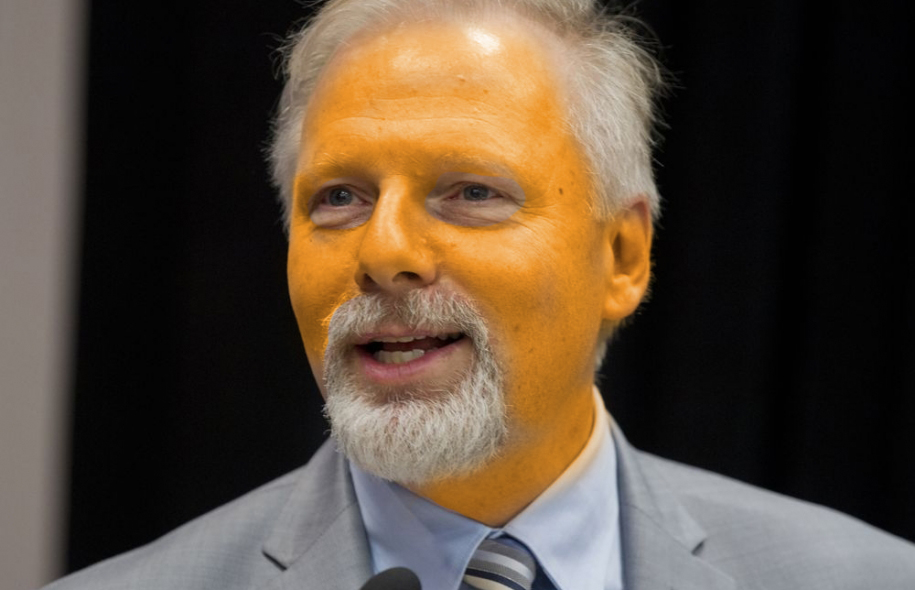One candidate for the top job defines “perfect immigration” as European. He wants to “start a discussion” about banning burkas and niqabs in public because “in Africa, AK-47s under burkas, it’s proven.” He warns that his main rival has the support of a controversial Muslim preacher. To those repelled by this descent into dog whistle politics, he replies: “What I’m proposing is for the common good, and political correctness is not going to stop me from making proposals.”
No, his name is not Donald Trump. But Jean-François Lisée, who started out as an underdog candidate to replace Pierre Karl Péladeau as leader of the Parti Québécois, now threatens to run away with the prize thanks to his Trump-like penchant for erecting bogeymen. He is winning over an increasingly geriatric PQ membership by promising a path back to power, and eventually sovereignty, that runs through divide-and-conquer identity politics and fearmongering.
Mr. Lisée, a former adviser to previous PQ premiers and a member of Quebec’s National Assembly since 2012, changes positions like the weather. Caught in his own contradictions, he usually blames the media for distorting his record, which is a bit rich for the 58-year-old former La Presse journalist that he is. He reminds one of a used-car salesman with a master’s degree in semantics. This makes him a dangerous political adversary.
No one doubts Mr. Lisée would be a formidable opposition leader, which is why Premier Philippe Couillard’s Liberals most fear a Lisée victory in this week’s PQ vote. A recent CROP poll showed a Lisée-led PQ would run neck-and-neck against the Liberals in a general election. Under Alexandre Cloutier, initially the clear front-runner for the leadership, the PQ would lose soundly to the Liberals and battle the Coalition Avenir Québec for a distant second place silver.
Still, the Couillard government looks most days like it’s living on borrowed time. Its favourability rating rivals that of Mr. Trump. The Premier is seen as aloof and disconnected. One after another, members of his cabinet have been accused of ethics breaches, conflicts of interest or sheer incompetence. A few have resigned; others risk the same fate. The only thing working in the Liberals’ favour is a divided opposition and a near-monopoly on non-francophone voters.
This leaves the PQ, like Quebec itself, at a crossroads. Young Québécois do not see sovereignty as the cause of their generation. They embrace immigration, diversity and English, while forging a distinct francophone Québécois identity that is supremely self-confident and internationalist. A PQ concerned about its long-term survival would recognize that peddling identity politics is the surest way to alienate these voters. Defining a collective project that harnesses their enthusiasm would be the best way to rebuild the party.
This is the message that Mr. Cloutier, 39, has ostensibly tried to advance. But having led a front-runner’s campaign, saying as little as possible, he hasn’t got far. He may only have left both old-guard sovereigntist hardliners and their modernist challengers confused about his true convictions.
Mr. Lisée has been unambiguous. He risked alienating hardliners by vowing not to hold a referendum on independence during the first mandate of a future PQ government. But he is persuaded that the PQ lost the 2014 election not because of antipathy toward its proposed Charter of Quebec Values but because voters wanted to avoid another disruptive referendum.
“I’m interested in CAQ voters,” Mr. Lisée recently told Le Devoir. The CAQ electorate is white, francophone, exurban and conservative. It is nationalist, but prefers continuity over disruption, which is why many of its adherents left the PQ in the first place. Under Leader François Legault, a former PQ cabinet minister, the five-year-old CAQ has made populist identity politics its calling card, favouring lower immigration levels and banning the burkini from public pools.
Mr. Lisée, a self-proclaimed social-democrat who eschews the CAQ’s fiscal conservatism, figures his Charter-lite, no-referendum election platform would lure enough CAQ voters to ensure a PQ victory in 2018. He is also counting on Quebeckers’ infatuation with Prime Minister Justin Trudeau to have run its course by then, saying Mr. Trudeau will eventually “show his incompatibility with Quebec” on pipelines, multiculturalism and federal health transfers. After all, he says, Mr. Trudeau “congratulates a woman for taking the oath of Canadian citizenship with her faced covered.”
As for that self-imposed no-referendum straight-jacket, Mr. Lisée would surely find a way to slip out of it.































Laissez un commentaire Votre adresse courriel ne sera pas publiée.
Veuillez vous connecter afin de laisser un commentaire.
Aucun commentaire trouvé